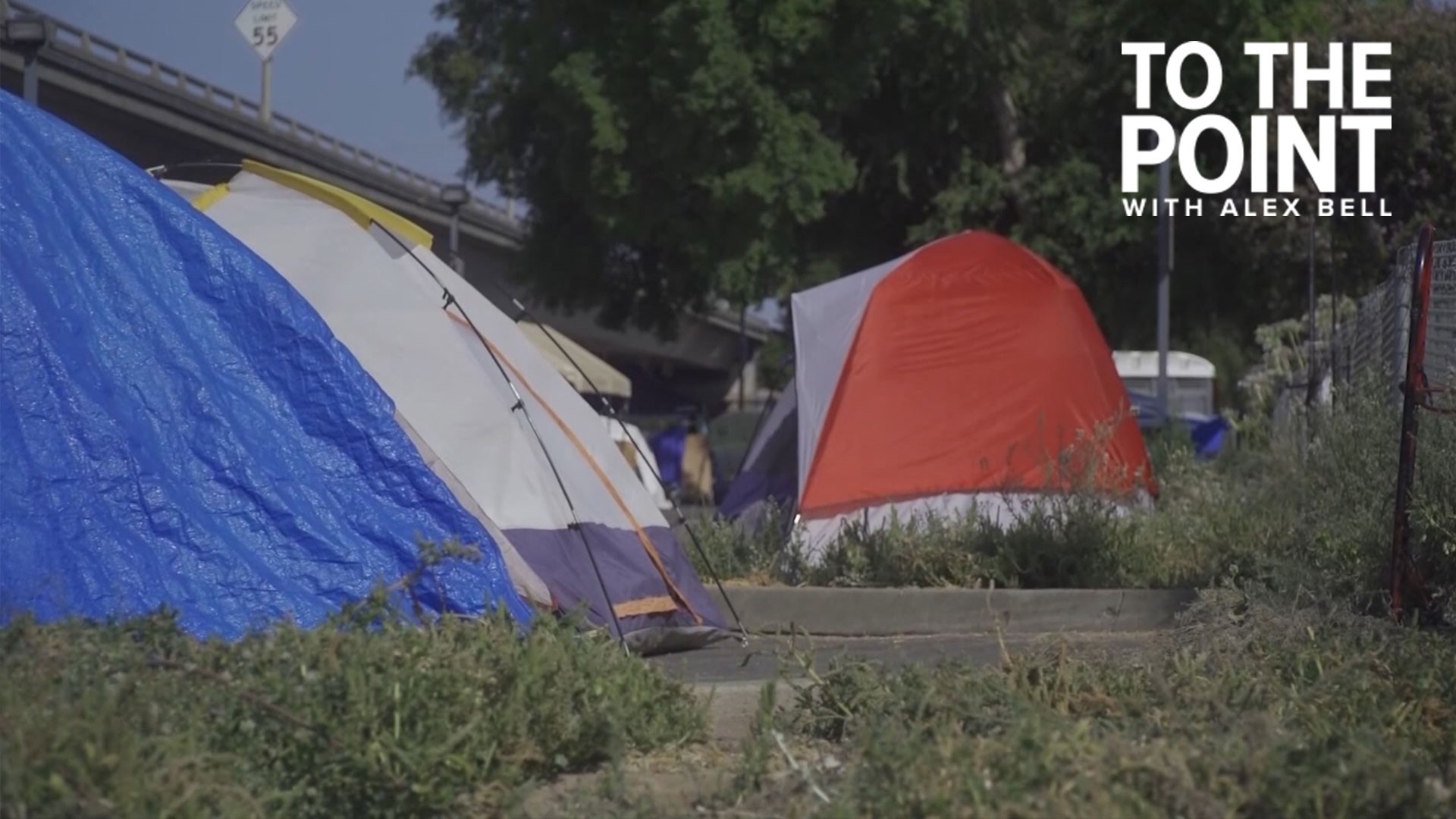SACRAMENTO, Calif. — A U.S. Supreme Court decision has the potential to change how local and state governments address the homelessness crisis.
Currently, a federal court decision bans western states from fining or arresting people for sleeping or camping on public property.
A case before the Supreme Court challenges that ban, and the decision could come as soon as Thursday.
Arresting or fining people for sleeping or camping on public property when they have nowhere else to go — that is, when the city or county where they live doesn’t have a shelter bed for them — amounts to cruel and unusual punishment, a violation of the 8th Amendment.
That’s according to a pair of decisions by the Ninth Circuit Court of Appeals: Martin v. Boise in 2018 and Grants Pass v. Johnson in 2022.
Back in April, the U.S. Supreme Court heard a case asking to overturn this precedent, with people like Governor Gavin Newsom saying it ties the hands of local and state leaders when it comes to addressing homelessness.
“The impediments under Grants Pass and the courts have imposed — it's a real issue,” Gov. Newsom said earlier this year.
On the other side, people experiencing homelessness and their advocates tell ABC10, overturning the precedent would amount to criminalizing homelessness itself.
“Martin v. Boise basically covers the fact that they can’t move people in public spaces without adequate shelter,” said Crystal Sanchez, Western Regional Director for the National Union of the Homeless and President of the Sacramento Homeless Union. “We don’t have shelter. We have a waitlist here in Sacramento of over 2,500 people.”
With the Supreme Court’s decision due any day now, ABC10 asked Ron Hochbaum about possible outcomes. He teaches at University of the Pacific’s McGeorge School of Law and runs the Homeless Advocacy Clinic there.
“Certainly, the current Supreme Court is a more conservative court than we've seen in decades,” Hochbaum said. “If this is an ideologically motivated decision, you can expect the Supreme Court to allow cities, counties and states to continue fining and arresting people for sleeping outside, even though they have nowhere to go. However, during oral arguments, we did see questions from conservative justices like Amy Coney Barrett, and Brett Kavanaugh, acknowledging that there aren't enough shelter beds or affordable housing for everyone experiencing homelessness. However, how the court will incorporate that reality into its decision is really unknown.”
If the court upholds the current ban on arresting or fining people for sleeping outside when they have nowhere else to go, he says, “California and other states may be incentivized to focus on providing the necessary housing to get people off of the streets.”
But if the court overturns that ban, then laws that prohibit sleeping on public property could become enforceable once again.
“When these laws are enforced, they drive people deeper into homelessness, because the income people have for rent is redirected towards paying off criminal fines and fees,” Hochbaum said.
The U.S. Supreme Court will issue decisions for various cases every Thursday morning this month, so the decision could come out as soon as this week or as late as June 27.
WATCH ALSO:



















